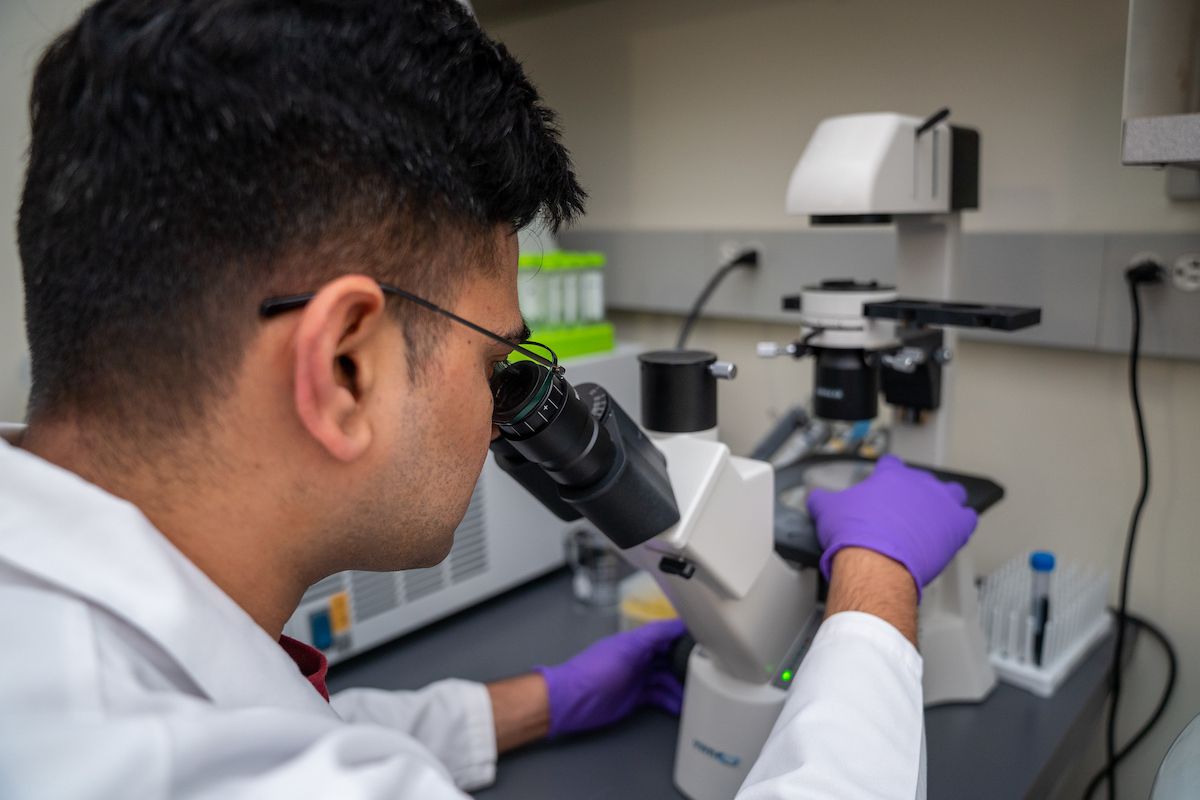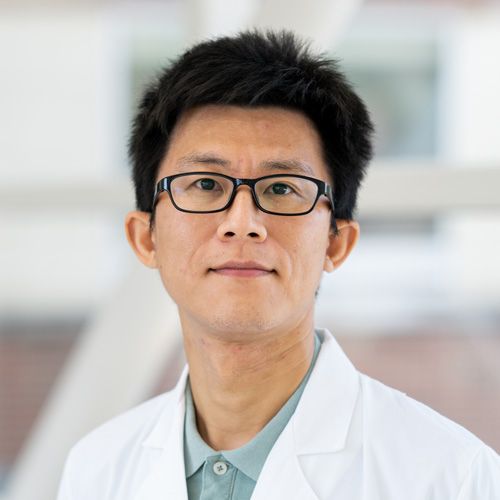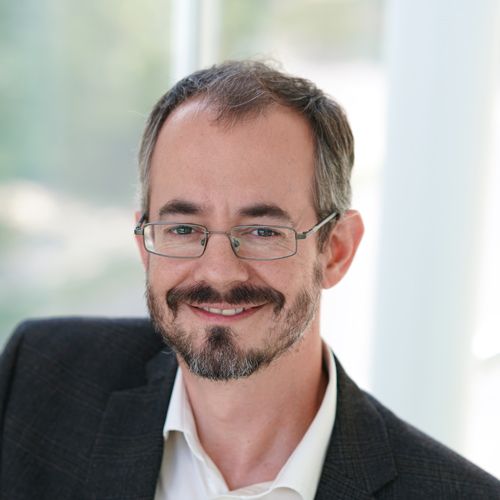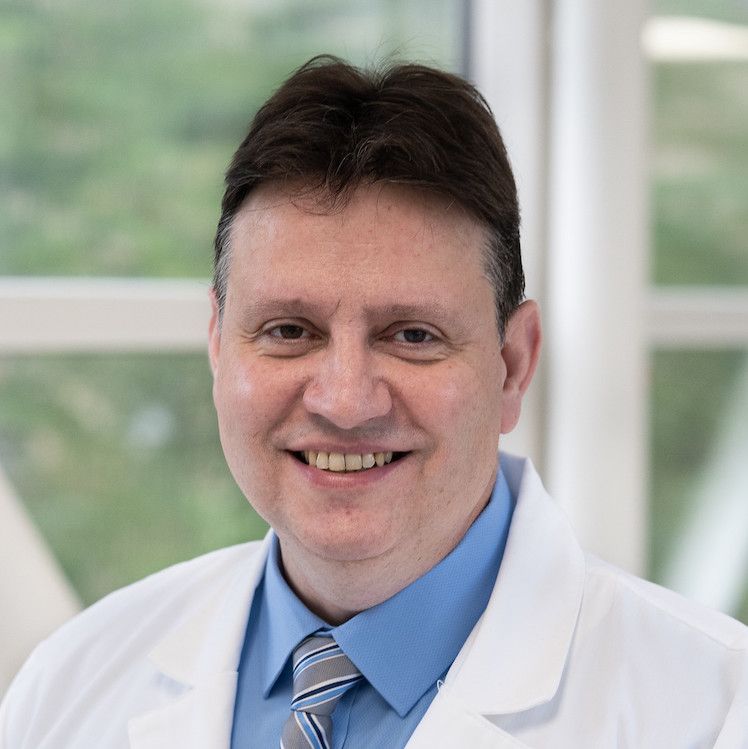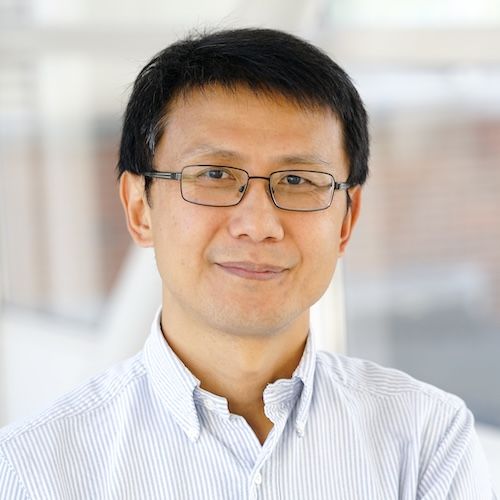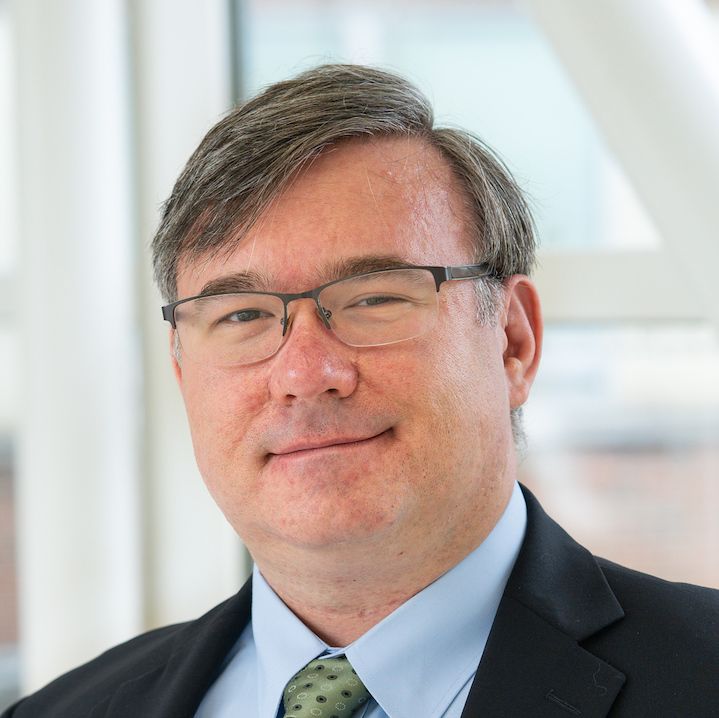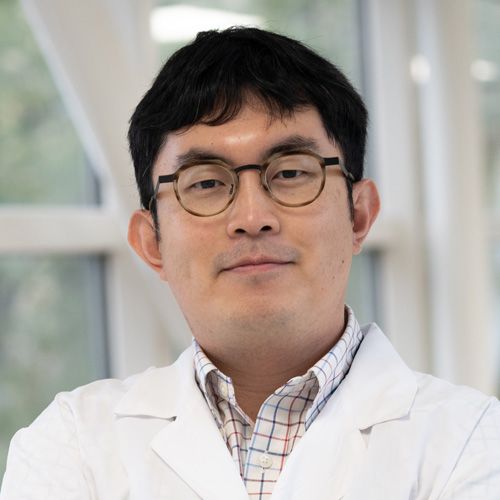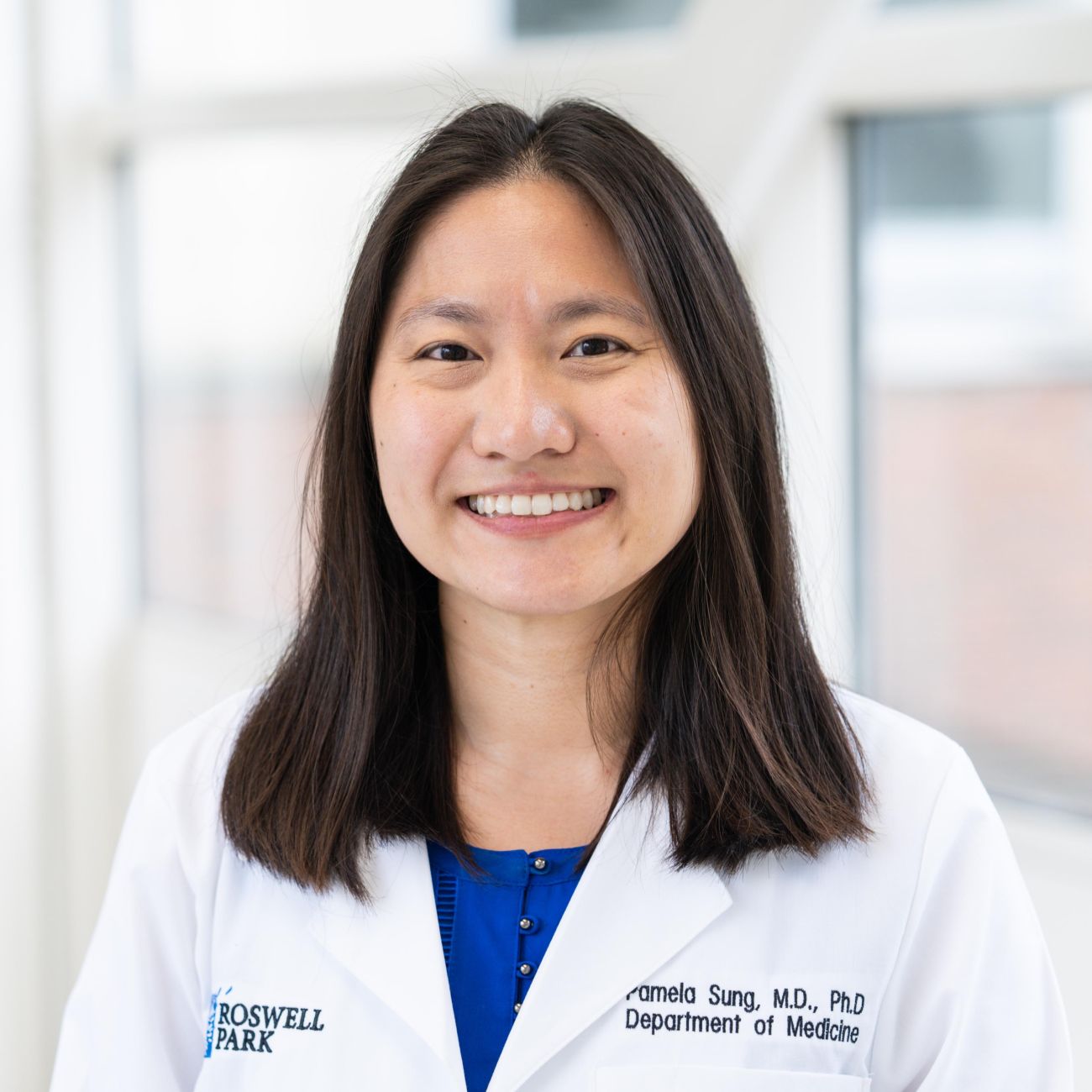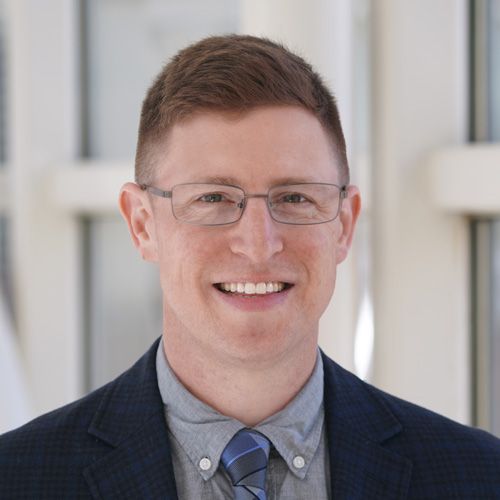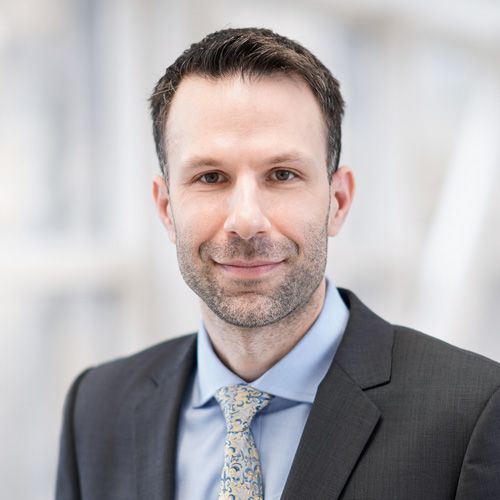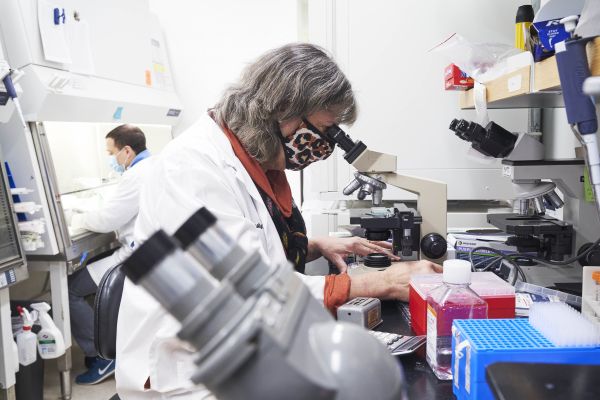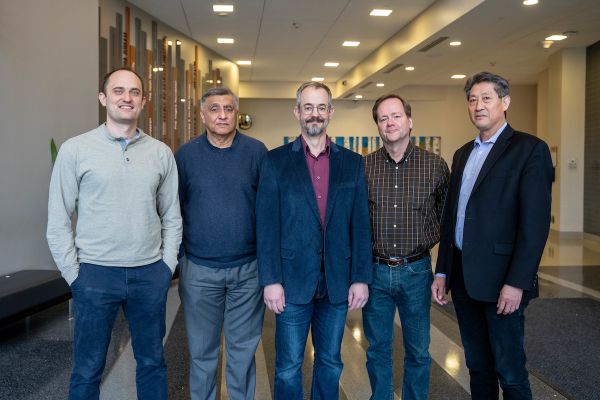Many of the world-class scientists at Roswell Park have new research ideas that could change the course of cancer treatment and lead to cancer cures. But without appropriate funding, their ideas would never get off the ground and become lifesaving standards of care. Roswell Park’s Scientific Advisory Committee (SAC) seeks to bridge this gap.
Donations to the SAC initiative provide seed funding for new projects and can be made to fund research for a specific type of cancer. Researchers submit their applications to compete for donated funds and an internal, objective committee decides which projects receive funding.
The projects funded in fall of 2022 included:
Prostate Cancer
Targeting prostate cancer vulnerabilities when it metastasizes to the bone
In 60-90% of men, advanced prostate cancer cells metastasize to the bones, significantly decreasing quality of life and increasing the risk of mortality. Dr. Wang wants to uncover the vulnerabilities of prostate tumors in the bone, beginning by studying how cancer cells utilize lactate in an unconventional way, to hopefully address both issues for these patients who experience a great deal of pain and risk mortality.
Leveraging metabolic stress in prostate cancer to impact the epigenome
Patients with advanced stage prostate cancer often relapse as their tumor adapts to treatment and becomes resistant. Dr. Smiraglia will leverage metabolic stress to target that method of adaptation tumor cells take. His investigation will improve our understanding of how that adaptation is made possible and provide a foundation for new ways to stop it.
Finding ways to eliminate changes in prostate cancer that develop resistance
Androgen deprivation therapy is commonly used to treat prostate cancer, but most patients will relapse when the cancer cells become resistant to treatment. Dr. Smiraglia plans to study just how those cells change their identities by epigenetic means to abandon their dependence on androgen to grow. Understanding this process more fully will make clear a path forward to eliminating that resistance in prostate cancer, improving success for patients.
Breast Cancer
A promising new solution to HER2 therapy resistant breast cancer
The overexpression of a particular protein is a major factor in HER2 therapy resistant breast cancer. Indirectly targeting that protein by inhibiting its regulators could be a promising solution to limiting resistance to treatment. Dr. Atanassov seeks to uncover the role of these regulators in HER2 therapy resistant breast cancer in order to ultimately introduce more effective treatment options for patients.
Revealing the secrets of chemo-resistant triple negative breast cancer
Triple negative breast cancer is the most aggressive kind of breast cancer. One treatment option is chemotherapy, but resistance often develops. Dr. Fang will look an epigenetic regulator during triple negative breast cancer’s response to chemotherapy to reveal novel DNA repair mechanisms and also potentially identify this regulator as a potential biomarker to predict chemotherapy response of this cancer in the future.
Lung Cancer
Role of innate lymphoid cells in sexual disparity of lung cancer incidences
Public health efforts dedicated toward tobacco cessation have led to a decline in rates of lung cancer among males. There has been a slower decline among females and new instances among female non-smokers are on the rise. Dr. Dey is investigating why this is happening and ultimately find ways to target lung cancer for effectively for female patients, more specifically, who are at higher risk.
Establishing the effects of obesity on the function and metabolic activity of regulatory T cells
Non-small cell lung cancer causes 20% of all cancer deaths in the US and has a 5-year survival rate of only 24%. Besides smoking, obesity is recognized as an amplifying factor for both disease risk and negative outcomes in many cancers. Dr. Barbi aims to uncover just how obesity drives tumor progression by fueling regulatory T cells and tumor-aiding immune suppression in patients with non-small cell lung cancer.
Finding new ways to overcome resistance using gene overexpression screening
One tumor-driving gene called KRAS is found in many cancers and, more specifically, one-third of all lung cancers. There is an existing treatment to inhibit one widespread variant of KRAS after first-line therapy like chemotherapy, but the results in patients vary. There is not an existing therapy that can inhibit KRAS and all its variants at once. Dr. Kim seeks to better understand how these variants become resistant in order to stop them proactively. He and his team expect their approach will lead to the discovery of novel therapies and prognostic biomarkers for cancer patients with rare gene overexpression.
Blood Cancers
Studying the combination of two therapies to reach more patients with acute myeloid leukemia
Existing treatment options for patients with acute myeloid leukemia (AML) are not effective individually for all patients. Dr. Sung has conducted initial research to point to the potential success of a combination of two existing therapies, which could reach the patients who would otherwise have developed resistance to one of those treatments alone.
Using protein inhibitor combinations to improve targeted therapy in acute myeloid leukemia
A protein called FLT3 is frequently mutated in AML and causes an aggressive form of the blood cancer. Treatments are available to target this particular protein, but they don’t work for some patients. Dr. Sung aims to find out more about this protein’s interaction with AML on a molecular level. This will help to improve options for that subset of patients in need of an effective treatment and could also improve existing treatment options.
Other Cancers
Searching for new treatments for pancreatic cancer
Pancreatic ductal adenocarcinoma is a deadly cancer with a 5-year survival rate of 11%. Dr. Feigin and his colleagues have discovered a potentially new, non-toxic therapy option for these patients who need effective treatment options. Researchers hope to develop more effective inhibitors and learn if their new approach can potentially stand alongside existing standard of care therapies.
Studying the effects of ultraviolet light and immunosuppression on cutaneous squamous cell carcinoma
Ultraviolet (UV) light exposure is a critical risk factor for cutaneous squamous cell carcinoma (CSCC), the second most common cancer in the United States. Dr. Paragh’s team is establishing the relationship between early UV-damaged cell groups in the skin and CSCC risk in immunosuppression to help identify individuals most at risk for CSCC. They are also focused on establishing the efficacy of early topical treatment before immunosuppression to reduce the risk of CSCC.
